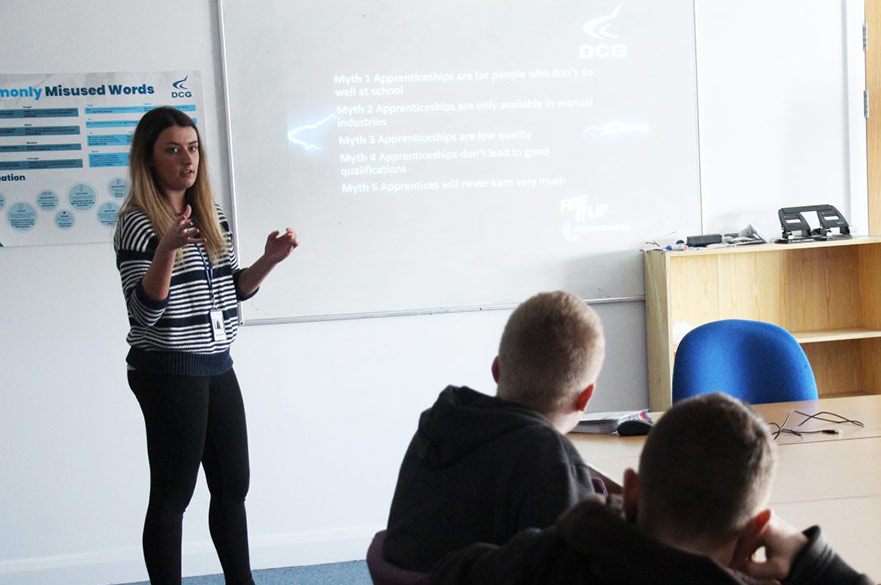Thousands more young people in some of the most disadvantaged regions of England will benefit from a fifth year of investment in the flagship Opportunity Areas programme as part of the government’s commitment to levelling up.
Since 2016, the programme has invested £90 million on improving school standards, attendance, teaching quality and recruitment, careers training and advice, literacy and maths skills, alongside tackling barriers to learning that exist beyond the school gates.
An additional £18 million will now be invested in 12 Opportunity Areas across the country, which include Blackpool, Derby and Oldham. Each area will be ‘twinned’ with previous areas who have faced similar challenges so they can benefit from their expertise and collaborate more closely on the issues facing children and young people.
The programme aims to help children and young people improve in key subjects such as maths and English, support pupils who are at risk of falling out of education or give older students the confidence and skills to make the leap from school into work.
Ensuring every child has access to the high-quality education and support they deserve is a key part of the government’s levelling up agenda. The Prime Minister has today set out his renewed commitment to ensuring opportunity is spread equally throughout the country and has endorsed the Opportunity Areas programme as a key part of this.
Opportunity Areas Minister Michelle Donelan said:
Opportunity Areas have been making a real difference in levelling up the outcomes for children and young people in some of the most disadvantaged parts of the country, from early years into employment. We have seen this difference in the rising standards in key subjects like maths and phonics, in how the targeted support available is boosting young people’s confidence to succeed and in how each area was able to adapt to the challenges of the coronavirus pandemic.
I have seen first-hand how the dedication and commitment of people on the ground in these areas is driving school improvement and removing the barriers to success. This funding will enable them to continue this important work, help sustain long-term improvements and outcomes, support even more children and young people, and level up standards across England.
The additional funding will help more children and young people across the country benefit from the expertise nurtured in the Opportunity Areas. Examples include the Sheffield City Region adopting a high-quality skills and careers strategy to create more opportunities for young people, following a successful rollout by the Doncaster Opportunity Area.
Hasting Opportunity Area’s work supporting literacy inclusion and covid recovery will be shared to help children and in Portsmouth and East Sussex, and Stoke-on-Trent’s twinning activities in Rotherham and Lincoln will provide mentoring for vulnerable and disadvantaged young people through community work at their local football clubs.
These activities will build on the existing successes of the Opportunity Area programme which include phonics results in Derby improving significantly in recent years, with the percentage of year one pupils achieving the phonics standard increasing to 83% in 2019, surpassing the national average. Improvements in Derby saw a 5-percentage point increase since 2016 (78%), against a national increase of 1 percentage point (81% in 2016 and 82% in 2019).
An innovative recruitment campaign across the North Yorkshire Coast has filled 225 teacher and support role vacancies in 45 schools, 40 coming from outside the area as did 13 new Teach First trainees, reducing spending and reliance on supply staff.
The proportion of children in West Somerset achieving the expected levels in the early learning goals has also increased year-on-year since 2016, from 57% in 2016 to 73% in 2019, which was above the national average of 72%.
Other successes across the wider programme include early years outcomes for disadvantaged children improving in nine of the 12 Opportunity Areas, phonics results for all pupils improving in 10 of the 12 areas, and Key Stage 2 performance improving by more than the national rate in 10 of the 12.
Over the past four years, the Opportunity Areas have been led by local people delivering tailored solutions to tackle entrenched problems in places for too long left behind, using local knowledge to address social mobility challenges, and levelling up the opportunities for thousands of young people to reach their potential.
As well as playing an important role in helping areas recover from the coronavirus pandemic, a key priority for year five of the Opportunity Areas will be ensuring the changes that have been put in place are sustainable, with a continued focus on the most impactful elements of the programme.
This announcement takes the total investment in the OAs to £108 million, continuing its work to improve early years and school standards and addressing barriers to learning that exist beyond the school gates. The Department for Education is now working directly with the Opportunity Areas to identify priorities for the fifth year of the programme.
Visit the Opportunity Areas Programme web page to find out more.
